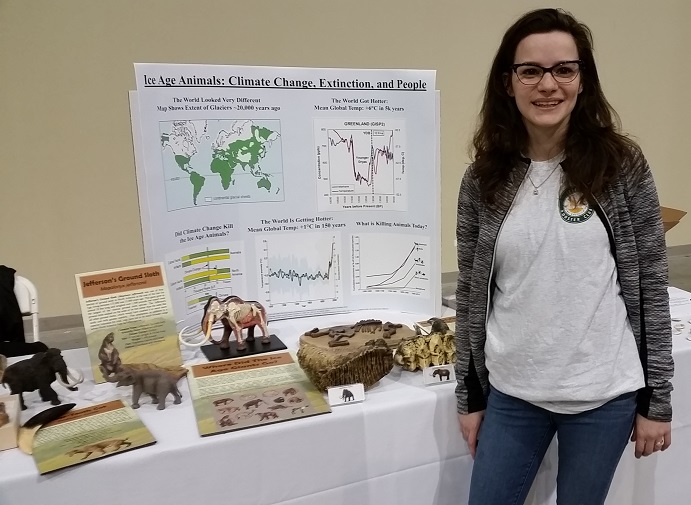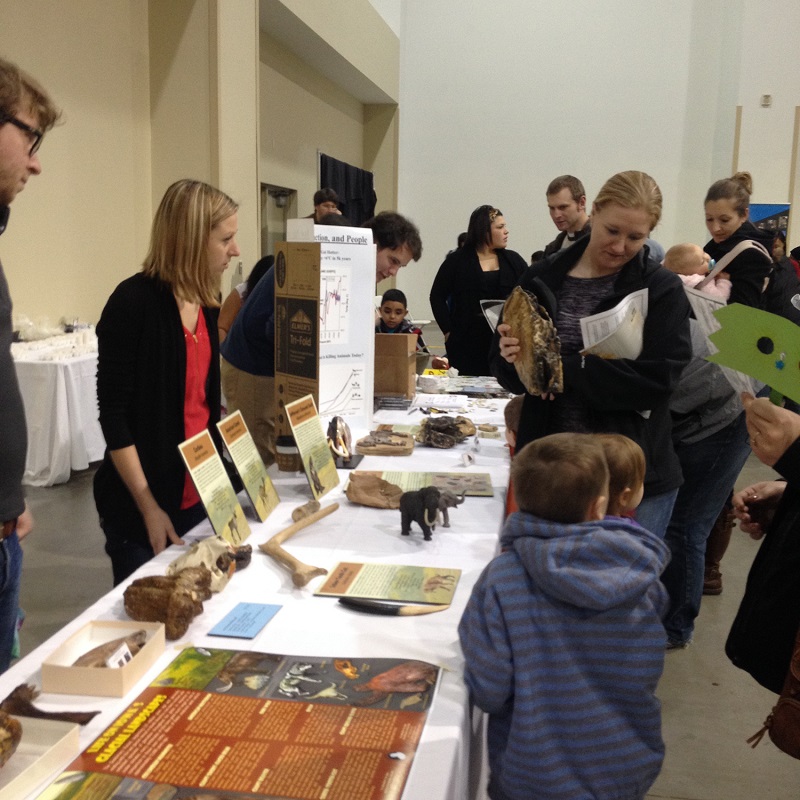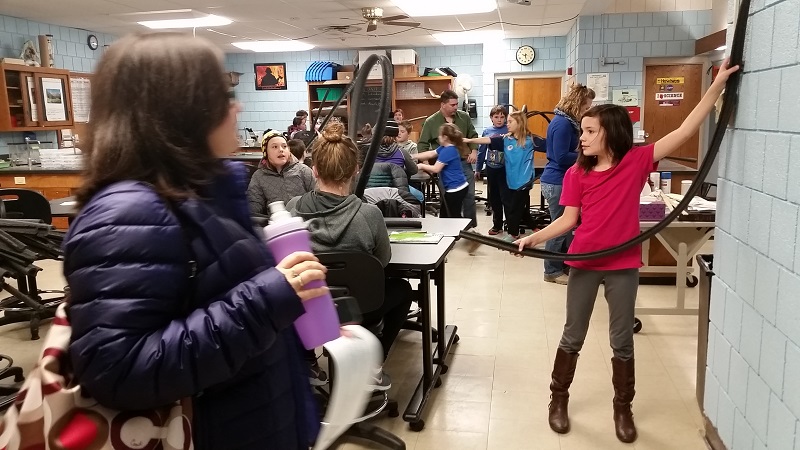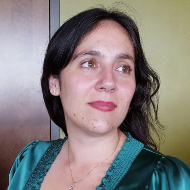NCSE’s Science Booster Clubs are off to a great start in 2016. We now have clubs operating at four locations: our original club in Iowa City, as well as three new clubs in West Branch, Cedar Rapids, and Clear Creek Amana. Membership is growing, and so is community enthusiasm. We have fun science events on the calendar from January to June throughout our region. And momentum is building—we’ve connected with more people in the last week than we did in our first four months (and our first four months weren’t too shabby)!
Partnering with Tiffany Adrain, manager of the University of Iowa’s Paleontology Repository, we brought an exhibit on ice age animals and climate change to over a thousand people at Coralville Iowa’s annual Winterfest.

Volunteers at the event report that, as with other major SBC events involving climate change education, most participants react positively to seeing information about climate science in a public context. As I described in my previous posts about science denial, we again encountered a few individuals who actively avoid climate information and react with disgust. We found more people at Winterfest who had heard of our Science Booster Clubs than ever before, and were able to collect some baseline survey data to get an idea of what people in this community think about potentially controversial scientific issues. It will be interesting to see if and how the knowledge and opinions of these communities change over time as people gain access to more public opportunities for science education.

The very next day, we participated at another event, this time with the new Clear Creek Amana Science Booster Club. SBC volunteers helped guide children through the scientific method in a variety of contexts involving physics and engineering.

While the kids were busy, we also worked with parents to start to understand the unique needs of this more rural community. Through baseline survey work, we began to learn about how scientific literacy as well as opinions about topics important to NCSE vary across the region, and how these factors correlate to community demographics like average income and education level. We are also working to learn what kinds of public science programming different communities will most enjoy so as to meet local needs, build excitement, and maintain interest.
So far, the biggest things we’ve discovered are not surprises. Regardless of community size or wealth, people care passionately about their children’s education. We also see the same enthusiasm for SBC events regardless of people’s community or background. People throughout our region are responding very positively to the fun, accessible science programming we’re providing through NCSE.

With the events we have booked on our calendar right now, we are likely to meet with at least eight thousand people between now and late May. It’s a wonderful opportunity to connect people to important scientific issues in a community context. And, with all the experience we’re getting, we’re coming closer and closer to being ready to scale up. Keep an eye open if you’d like to start a Science Booster Club in your community—in the next year, we’ll continue expanding throughout Iowa, and I suspect we’ll have a strong enough playbook to launch satellite clubs in other locations. Contact me at schoerning at ncse if you’re interested in being part of our next stage.

